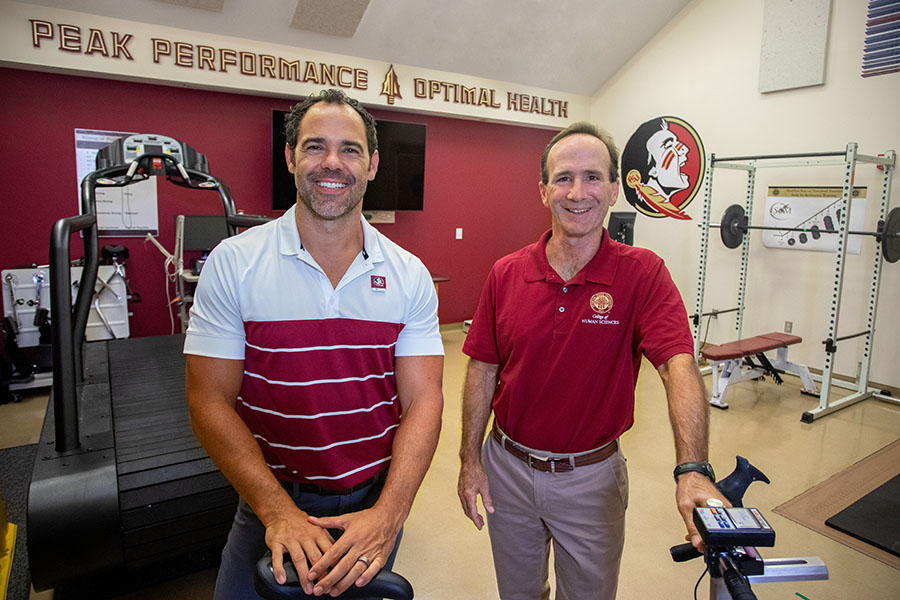
A multidisciplinary team of Florida State University researchers has received a $3 million National Institutes of Health grant to examine how resistance training may help older women struggling with obesity to potentially prevent Type 2 diabetes.
Professors of Nutrition and Integrative Physiology Robert Hickner and Michael Ormsbee will co-lead the project, which also will include colleagues from the FSU College of Health and Human Sciences and the Pennington Biomedical Research Center in Louisiana as well as the University of Arkansas.
“Although there are clear health-related benefits of physical activity, little is known about how resistance exercise, as opposed to endurance exercise, can reduce the risk of metabolic disorders, particularly in women,” Hickner said.
Excess body fat can cause insulin resistance, which is the driving factor behind type 2 diabetes. The researchers will investigate how effective resistance training is in improving the metabolic health of postmenopausal women with obesity and pre-diabetes.
The team will work with a group of study participants who will undergo regular training sessions at the university’s Functional Movement Clinic. Hickner and Ormsbee designed the resistance training program to target all of the major muscle groups and to expend approximately 300 calories per training session.
“The important piece to understand is that the common exercise prescription for controlling not only body weight, but also body fat, is aerobic (endurance) exercise,” Ormsbee said. “However, we also know that resistance training increases fat metabolism and improves body composition.
“The issue is that very few studies have been completed to directly compare endurance to resistance exercise when energy expenditure is equated between the types of training. In addition, due to many changes that occur with menopause and as a result of type 2 diabetes, there is a huge need to understand the most impactful form of exercise to recommend.”
More than 34 million Americans have diabetes and about 90 to 95 percent of them have type 2 diabetes. Another 88 million Americans have pre-diabetes, according to the Centers for Disease Control.



